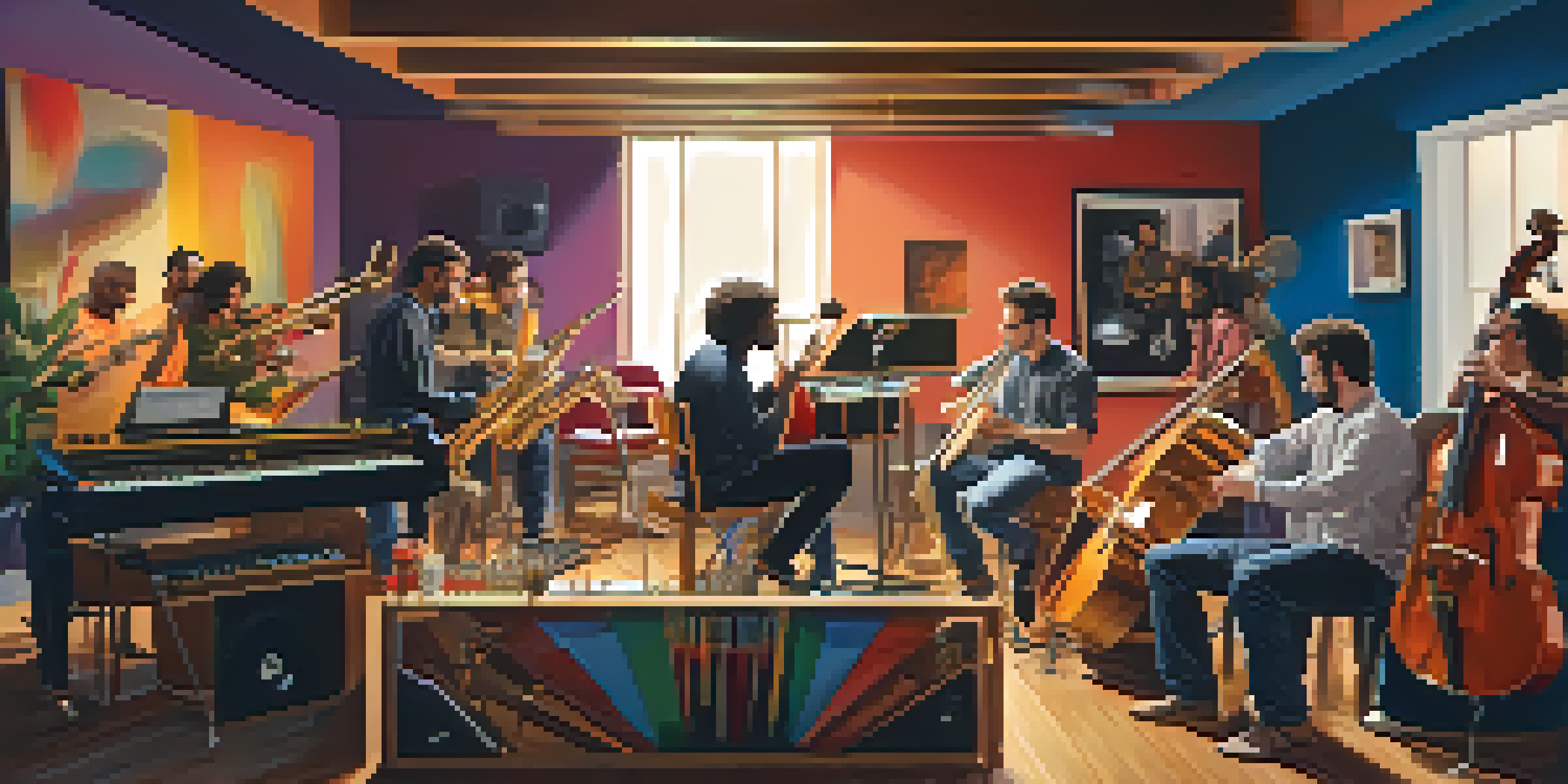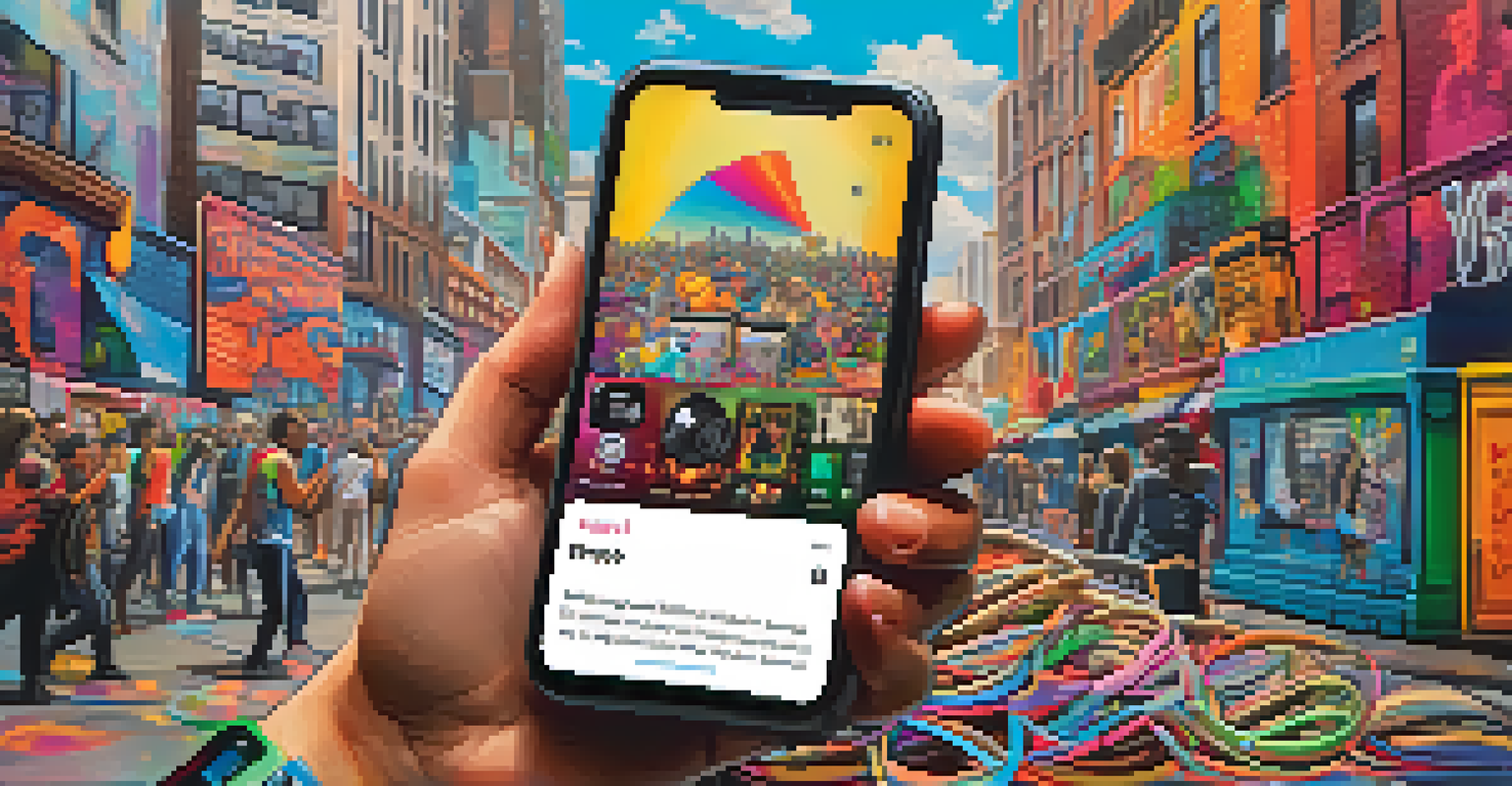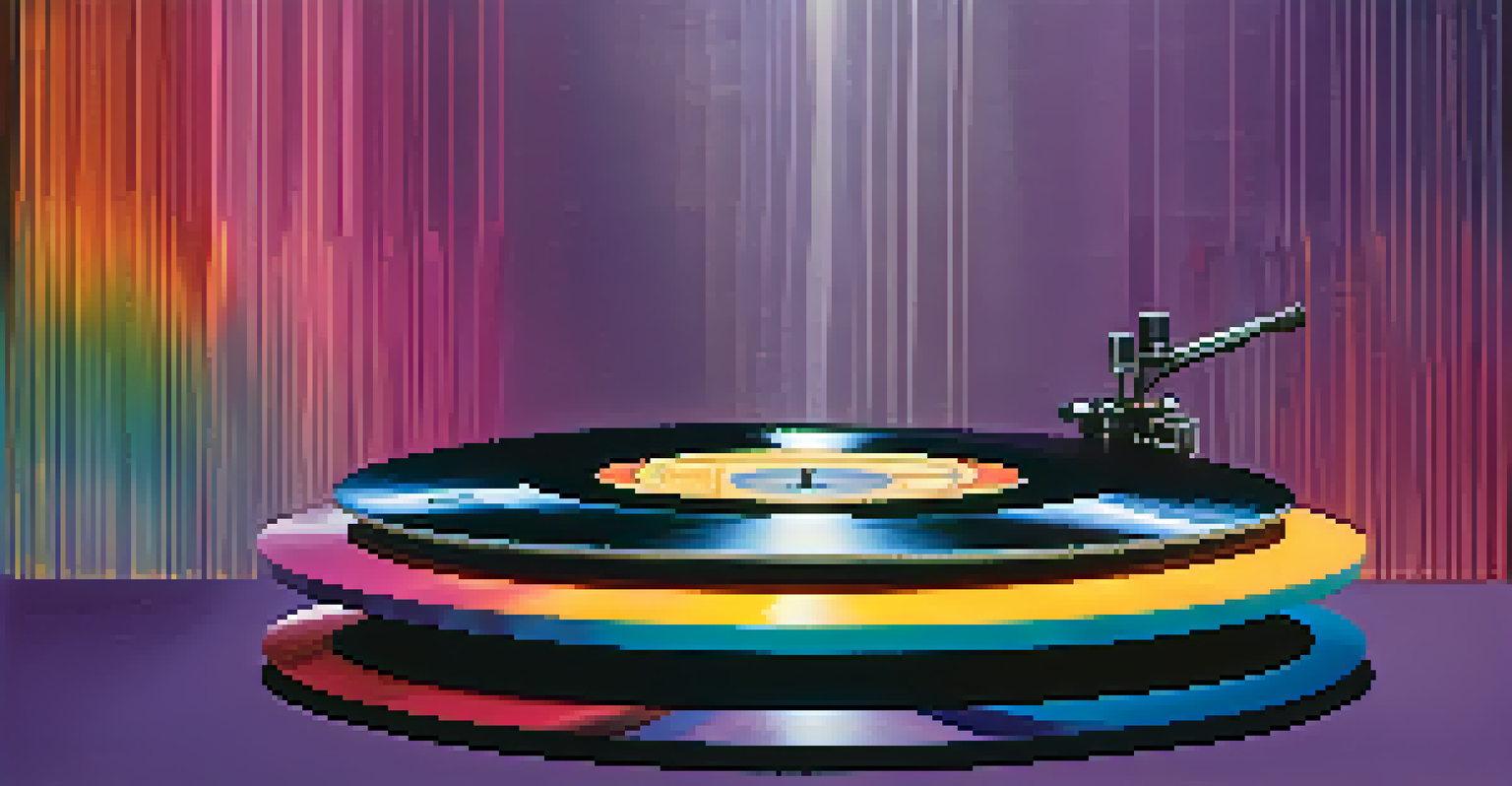The Impact of Social Media on Music and Identity Politics

The Rise of Social Media's Influence in Music Culture
Social media has revolutionized how we consume and share music. Platforms like Spotify, TikTok, and Instagram allow artists to reach global audiences instantly. This shift has empowered independent musicians, allowing them to bypass traditional record labels.
Music is a weapon in the war against ignorance.
For example, viral challenges on TikTok can catapult a song to fame overnight. Remember how 'Old Town Road' became a sensation? Its rise highlights the power of social media in shaping music trends and listener preferences.
Moreover, social media offers fans a direct connection to artists, fostering a sense of community. Fans can engage with their favorite musicians and participate in the creative process, shaping music in ways we never imagined before.
Music as a Tool for Expression in Identity Politics
Music has long been intertwined with identity politics, serving as a voice for marginalized groups. Genres like hip-hop and punk have often addressed social issues, from racial inequality to political dissent. In the age of social media, these messages can resonate more widely and rapidly than ever.

For instance, the Black Lives Matter movement saw a surge in music that addressed systemic racism. Artists used their platforms to amplify their messages, creating songs that became anthems for change and solidarity. This shows how music can be both a form of protest and a catalyst for social movements.
Social Media Empowers Musicians
Platforms like TikTok and Spotify enable independent artists to reach global audiences and engage directly with fans.
Social media also allows for diverse voices to be heard, giving rise to genres and artists that reflect various identities. This democratization of music means that listeners can explore a richer tapestry of sounds and stories, enhancing their understanding of different cultures.
The Role of Social Media in Shaping Musical Genres
Genres are no longer confined to traditional boundaries, thanks to social media. Platforms allow artists to blend styles, creating new genres that reflect diverse influences. For example, the rise of lo-fi hip-hop has attracted a dedicated following, merging elements from various musical traditions.
Social media is about the people! Not about your business. Provide for the people and the people will provide you.
This genre-blending is a direct result of the interconnectedness fostered by social media. Artists can easily collaborate across the globe, bringing unique sounds and ideas together. As a result, listeners are exposed to innovative music that challenges conventional genre classifications.
Additionally, fan-driven content on social media can influence the popularity of certain genres. Viral trends can lead to a resurgence of interest in niche styles, proving that audiences play a crucial role in shaping the musical landscape.
Social Media's Impact on Music Discovery and Accessibility
Discovering new music has never been easier, thanks to social media. Algorithms analyze user preferences and suggest songs, artists, or playlists tailored to individual tastes. This ease of access allows listeners to explore music they might never have encountered otherwise.
Moreover, platforms like YouTube and SoundCloud have become vital for emerging artists. These sites allow musicians to share their work without the need for a formal contract, democratizing the music industry and enabling more diverse talent to emerge.
Music Amplifies Activism Today
Artists use their music and social media to raise awareness about social justice issues, inspiring fans to take action.
However, this accessibility comes with its challenges. The sheer volume of content can overwhelm listeners, making it difficult to find quality music. As a result, users must navigate these platforms carefully to discover the gems hidden within the noise.
The Intersection of Music, Social Media, and Activism
Social media has become a powerful tool for activism in the music industry. Artists are using their platforms to raise awareness about social justice issues, often integrating these themes into their music. This has fostered a culture where music not only entertains but also educates.
For instance, during significant social movements, musicians often release songs that resonate with the cause, encouraging fans to take action. The blend of music and activism can inspire listeners to become more engaged citizens and advocates for change.
Furthermore, social media allows for real-time dialogue about these issues. Fans can share their thoughts and experiences, creating a collective consciousness that amplifies the impact of the music and the movements it supports.
The Challenges of Authenticity in the Digital Age
As social media enhances music's visibility, it also raises questions about authenticity. The pressure to maintain an online persona can lead some artists to compromise their true selves. This struggle can result in a disconnect between the artist and their audience.
For example, artists may feel compelled to follow trends to stay relevant, which can dilute their unique sound and message. This phenomenon illustrates the tension between artistic integrity and the demands of an ever-changing digital landscape.
Genre Boundaries Are Blurring
Social media fosters collaboration and genre-blending, leading to innovative musical styles that reflect diverse influences.
Ultimately, fans are becoming savvier, seeking genuine connections with artists. The challenge lies in balancing the desire for wide-reaching exposure with the need to stay true to one's artistic vision.
The Future of Music in the Age of Social Media
Looking ahead, the relationship between music and social media will continue to evolve. Technologies like virtual reality and artificial intelligence are poised to reshape how we create and experience music. These innovations could bring even more immersive and interactive experiences for fans.
Moreover, the ongoing democratization of music creation means that diverse voices will continue to emerge. As more artists gain access to tools and platforms, we can expect a richer, more varied musical landscape that reflects a broad range of identities and experiences.

As we navigate these changes, one thing is clear: social media will remain a pivotal player in the music industry. Its ability to connect, inspire, and mobilize will shape not only how we consume music but also how we understand ourselves and our communities.